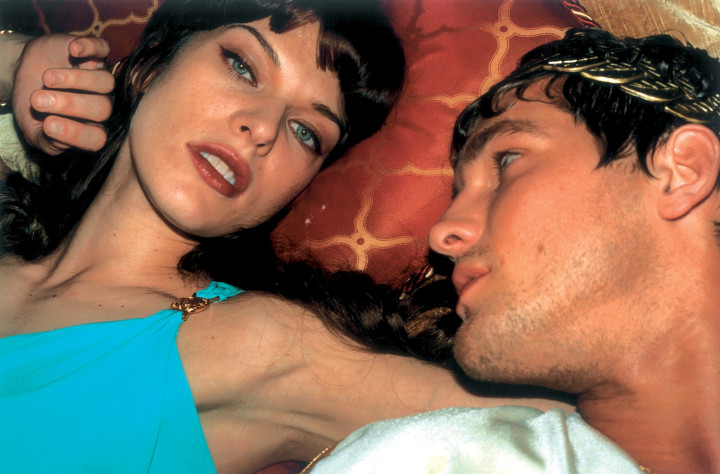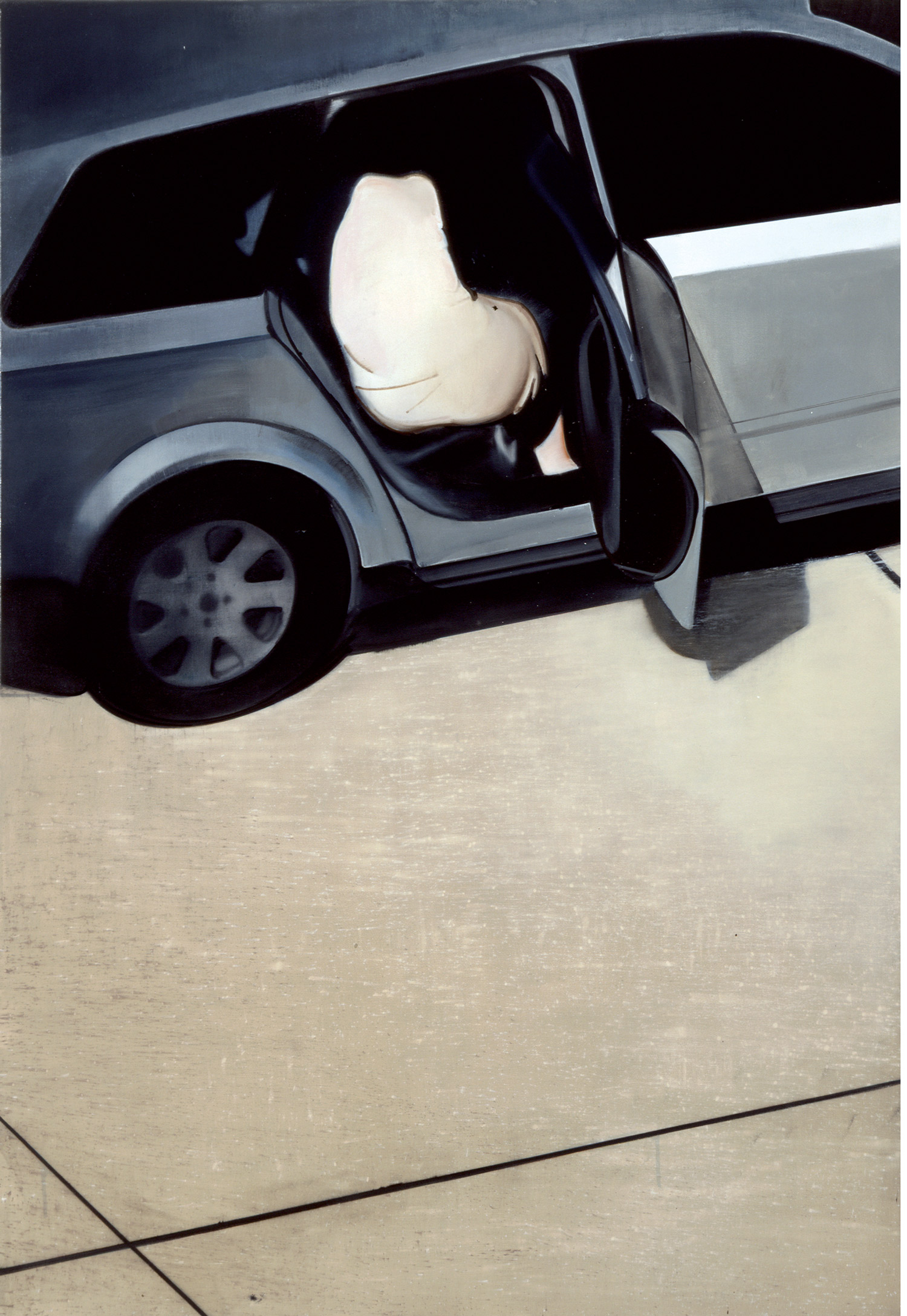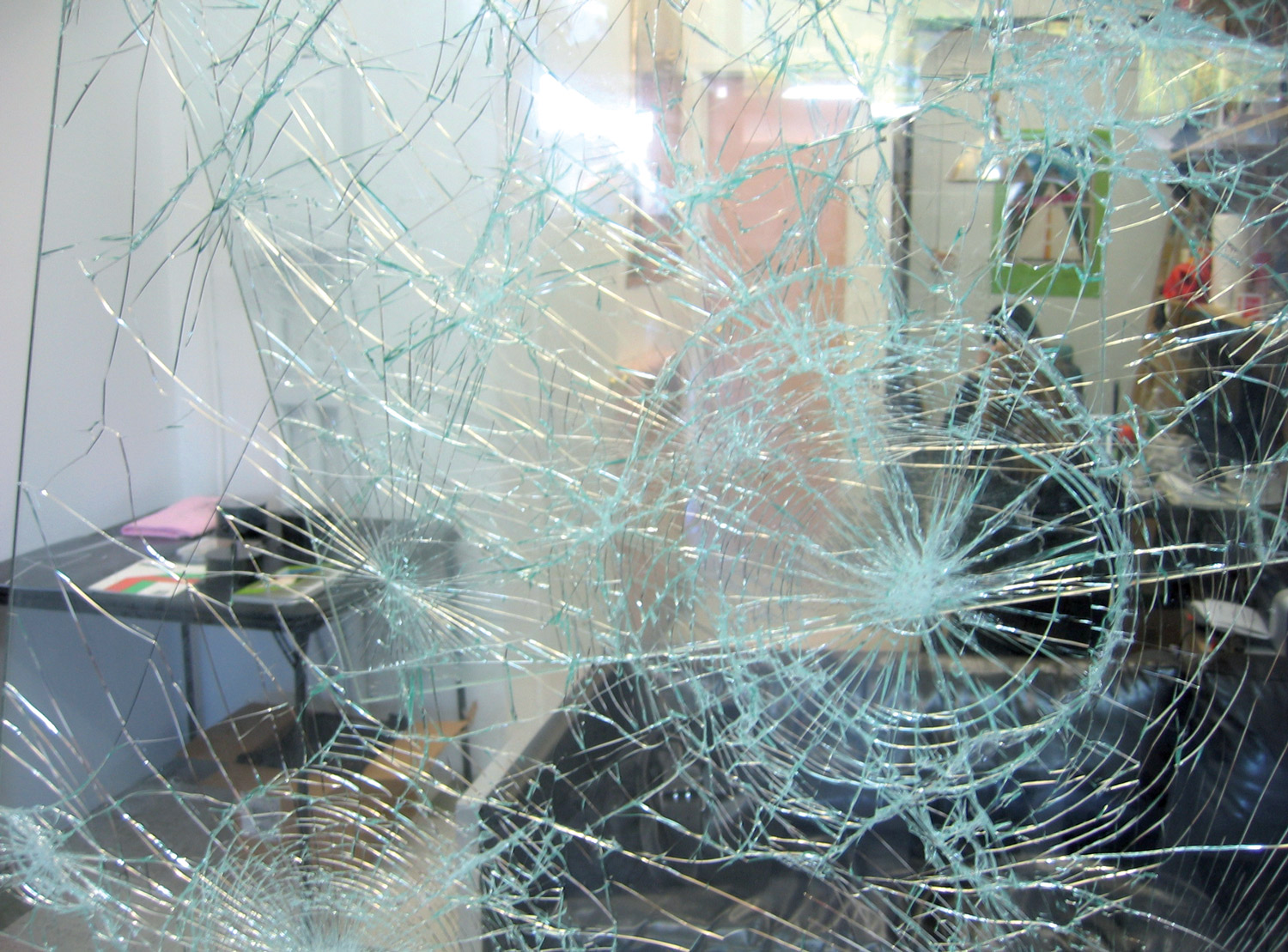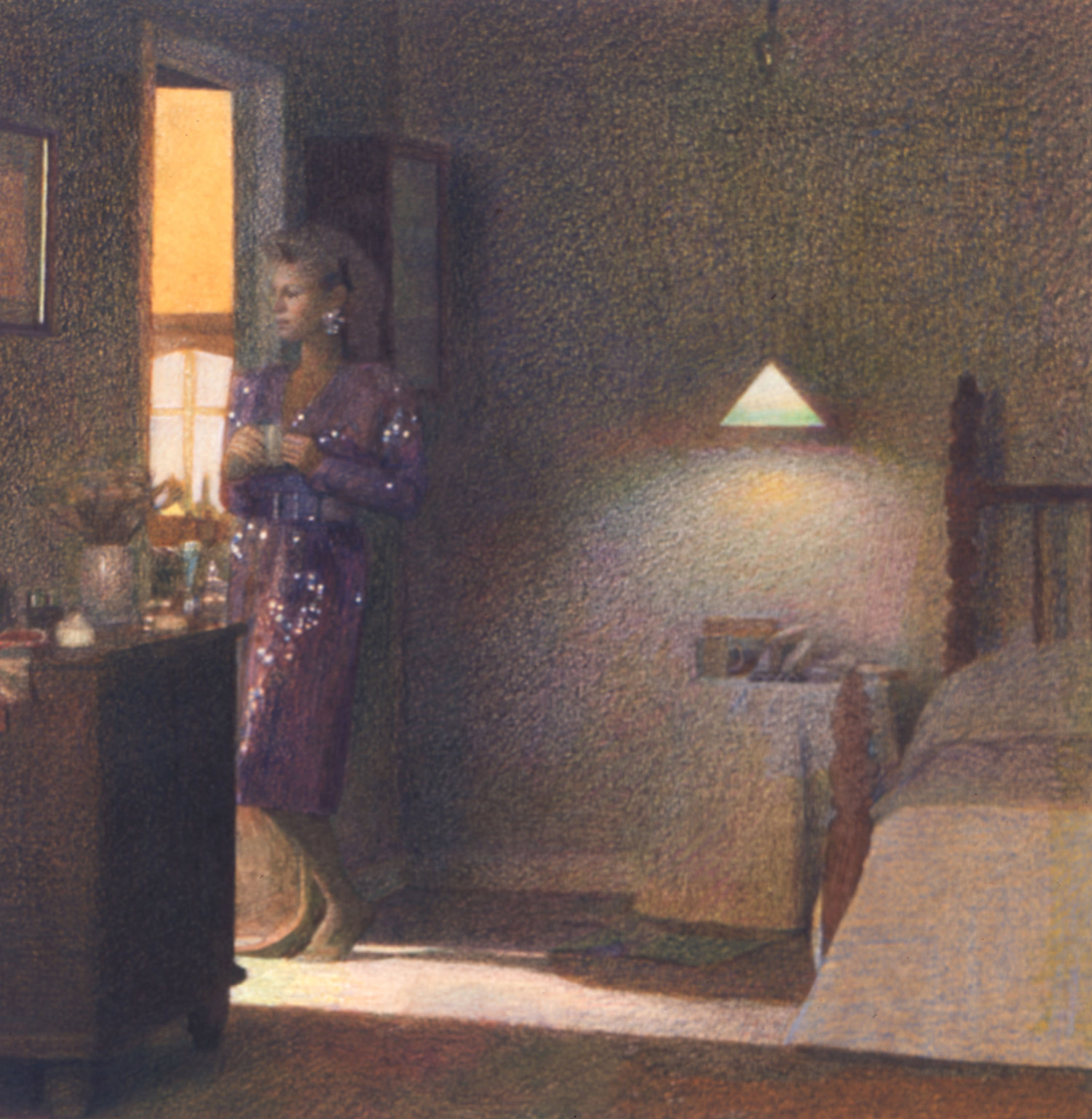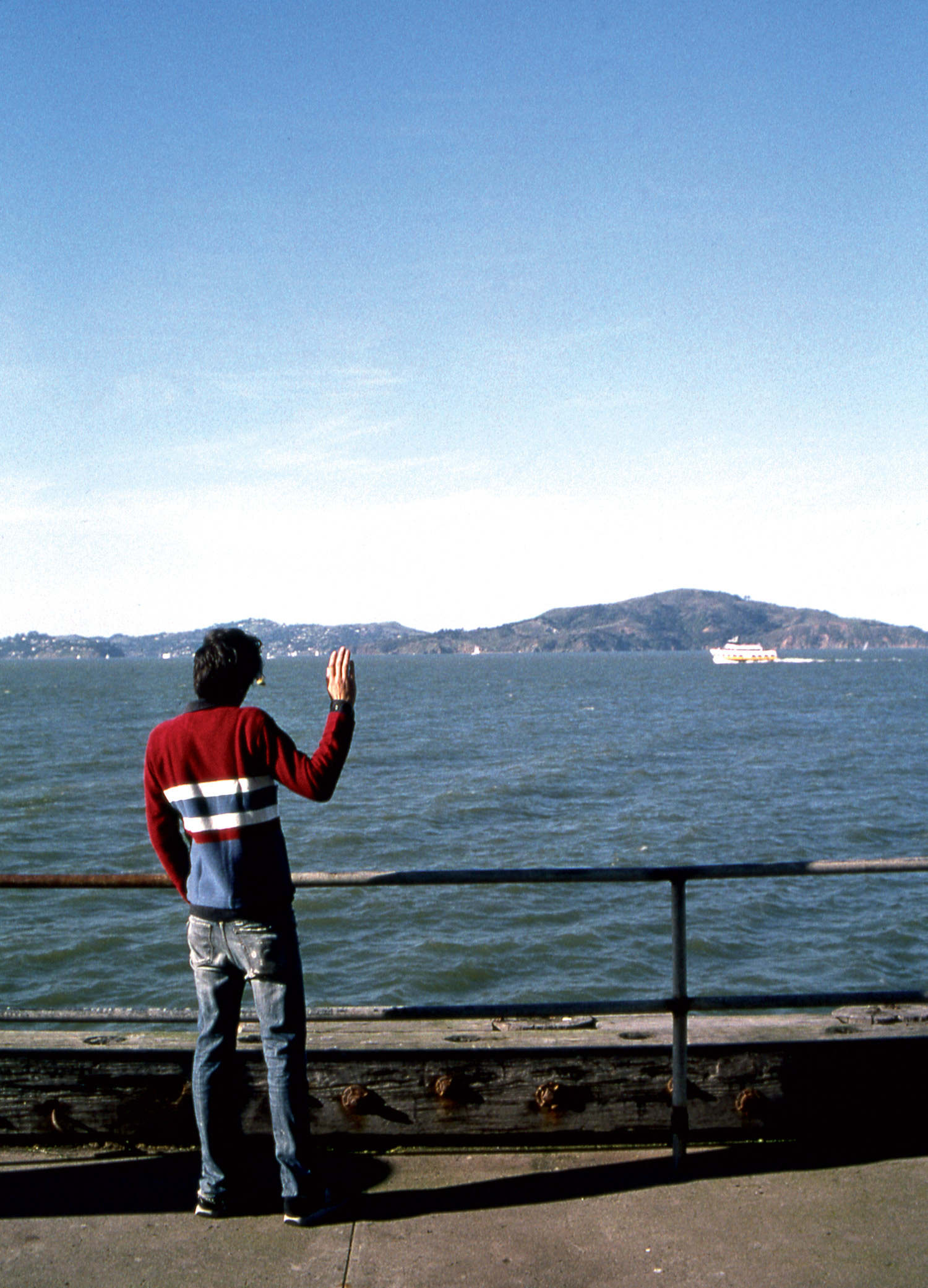 Francesco Vezzoli: Let’s start with Caligula, the movie. What did you think when you saw it for the first time?
Francesco Vezzoli: Let’s start with Caligula, the movie. What did you think when you saw it for the first time?
Bob Colacello: I remember Diana Vreeland and I had made a date to see the premiere. Debbie Harry overheard Diana saying, “Bobby and I are going to see Caligula tomorrow night!” So she asked if she could come with us. Of course Debbie Harry was late. We went rushing over into the theater, the lights were already going down. There were no seats left except right in front of the screen. Debbie Harry went ahead of us. And she had a kerchief on, just like Jackie O. As soon as she took it off, people in the dark started saying “It’s Debbie Harry! It’s Blondie!” When the film started, Diana took out her opera glasses. I said, “Diana, we’re in the front row!” She replied, “Well, I don’t want to miss a detail!”
At the end of the projection, Diana was furious: “Franco Rossellini told me this was the uncensored version. This film has been cut!” I said, “Diana, what could you possibly have wanted to see that you didn’t see?” “Well, that scene when he’s in bed with the horse… suddenly there’s a jump cut. I can recognize a jump cut.” “You’re telling me that you wanted to watch someone having sex with a horse? Is that what you are telling me, Diana?” “Well, come on, this is Caligula! I wanted to see something fantastic. I wanted to see something fabulous and unbelievable!”
Out of the theater, we invited Debbie out for dinner. She refused: “I really can’t, my grandmother died two days ago and I have to go to the funeral. Well, the wake.” So she took a taxi. Diana was amazed. “Did I hear right? She had to go to her grandmother’s wake and instead she came and saw Caligula?” That Diana found shocking, not the movie… in my opinion, it was not a very good movie.
FV: I think Caligula was a milestone in the history of cinema, because it ended up being stolen from its director. It reminds me of Le Mépris and the contrasts between Jean-Luc Godard and Carlo Ponti, just like between Tinto Brass and Bob Guccione. This movie has so many souls… Guccione inserted some porn scenes, starring his Penthouse starlets. So, in several scenes you see the face of Malcolm McDowell and then you see the naked body of somebody else. And there was Gore Vidal’s sharp script… In the end, everybody sued each other. Tinto Brass sued Guccione, Guccione sued Tinto Brass. Gore Vidal sued Rossellini and Rossellini sued Guccione…
BC: That’s right, and that went on forever. Doris Duke was paying Franco Rossellini’s legal bills. The cast of characters was very interesting. Maybe it’s not the best movie we’ve seen, but it’s one of the most traumatic. You could write a novel about it. I remember that initially the project included Paul Morrissey as director and Mick Jagger as Caligula. Gore Vidal wrote the script. At some point Franco and Gore realized that they couldn’t raise money with Paul Morrissey as the director, so they dropped him. Then, Mick Jagger dropped out too. Anyway, it ended up as we all know.
FV: Did you know Franco Rossellini, the producer?
BC: Yes, he was the best. One of the funniest people I have ever met. I remember once we were both in Greece and we went to dinner at Stavros Niarchos. His son Philip invited us as he wanted to cheer his father up, because Franco could make anybody laugh. Franco said, “I’m in such trouble with Doris. I’m caught in between Doris and Imelda, because I am the one who convinced Doris to loan Imelda 5 million to pay her bail. You know Stavros, I don’t have to tell you how cheap the billionaires are, nobody is cheaper than billionaires!” Stavros couldn’t stop laughing. And that’s Franco Rossellini.
FV: What was Franco Rossellini’s relationship to Andy Warhol?
BC: Andy made two films in Italy with Paul Morrissey, in the early ’70s, Frankenstein and Dracula, both produced by Carlo Ponti. Andy and Paul spent a lot of time in Rome and got to know Franco fairly well. Franco was producing an Elizabeth Taylor movie called The Driver’s Seat, based on Muriel Spark’s novel, a sort of thriller. He asked Andy to appear in it. This movie was so bad that it opened and closed in Monte-Carlo. Princess Grace gave the premiere as a favor to Franco. It was an incredible premiere. Niarchos and Onassis were both there. The paparazzi came into the theater to take pictures and the film was already starting. Andy had this little part, but it was a nightmare, because he could never remember his lines. Also Elizabeth Taylor was so distraught in those days, because she was in between her two marriages to Richard Burton. She would not arrive on the set until four in the afternoon. So she would basically work for an hour. And it took two weeks to shoot a scene that should have taken two days. The scene was set in a Rome airport. So it was the most pleasant place to spend two weeks… I started writing a diary then, which is the beginning of my diaries. I lived in this villa Andy had rented to make Frankenstein and Dracula. He asked me to stay so I could baby-sit his dog Archie while he was trying to act.

FV: Was that the occasion it was decided to publish your diaries in Interview?
BC: Just a little later. When I got back from Rome, I happened to have a meeting with Leo Lerman, the future editor of Vogue. He asked me what I was doing, and I told him about my diary, and he said he wanted it for Vogue. Then Alexander Lieberman thought it was too much gossip for Vogue. So he sent it to Helen Gurley Brown at Cosmopolitan. I was furious, because I did not want to be in Cosmopolitan… Luckily Helen sent it back to Alex, saying, “This is far too sophisticated for Cosmo!” Finally Alex caved in and it was published in Vogue, and it was such a success, Leo wanted me to do it every month. Andy then came to me: “Well, you can’t do it for Vogue! You have to do it for Interview!” And that is how Bob Colacello started out from Franco Rossellini’s movie. I really loved Franco. He was definitely part of the whole ’70s scene.
FV: I have always thought there is some sort of link between Andy Warhol’s work and Roberto Rossellini’s movies, so I wondered if they actually met. But I’ve never really found out any objective proof… Do you know if Warhol ever got in touch with Rossellini?
BC: They probably met, but I was not there. I don’t know.
FV: Was Warhol fond of Rossellini’s movies?
BC: I can’t say that with certainty. Andy used to love things like spaghetti westerns or horror movies more than he would like Rossellini or Bertolucci or Antonioni. He always took the stance that he was against art and intellectual movies. I can’t remember Andy ever commenting on Roberto Rossellini. I loved Rossellini from when I was in film school. I think he was one of the greatest Italian directors.
FV: Where did you study?
BC: I made my film studies at Columbia University under Andrew Sarris. In the film criticism class you had to review any film you wanted that was out in theaters at the time, as your homework assignment for the week. If Sarris thought your review was pretty good, he would publish it in the Village Voice. He used to publish two or three a week out of twenty students in the class. And I was one of those he published rather regularly. And I still have a scrapbook with my reviews in them. I think I reviewed The Conformist.
FV: How did you meet Andy Warhol?
BC: I reviewed Andy Warhol’s Trash for the Village Voice. So I met him through Paul Morrissey. Paul called me up and asked if I would like to write for Interview, which was less than a year old at that point.
FV: And that’s the beginning of the whole thing…
BC: Within six months I became its editor, and stayed at the Factory for the next 12 years.
FV: Did you watch the Academy Awards night? Did you like it?
BC: I have minimal interest in Hollywood. And I didn’t like the Oscars at all. Every year they jazz it up to make it more interesting. I think they should jazz it down. I think they should just go back to having an auditorium with red velvet curtains and a podium. Each star should come out, get their award, make their little speech and that’s it. The show as it is now is too expensive and still there is no structure to it. It seemed like a cross between “The Price is Right” and “The Apprentice.” Even the presenter, Chris Rock, was all wrong. Because he’s funny only when he’s offensive. I think someone like Hugh Grant should be the presenter. It has to be someone more like Johnny Carson or Bob Hope.
FV: Maybe the film industry today is exactly a cross between hip-hop culture and reality shows…
BC: I don’t know… I have been so busy the past year, finishing my Reagan book, then promoting it. I didn’t have any time for the movies. I saw two movies that were nominated. Finding Neverland, which I really liked, as I love Johnny Depp. He’s a great actor because you forget that it’s Johnny Depp after a while. Finding Neverland illustrated very well the creative process; it showed how a writer takes different materials and turns it into fiction. Also Julie Christie looked great. I also saw Closer, which I hated. I don’t like films like that. Too bleak, too heavy. My kind of movie is Catch Me if You Can. That’s a great movie!
FV: Do you see a link between Andy Warhol and Ronald Reagan? I know that some people don’t understand how could you write Holy Terror: Andy Warhol Close Up and then a biography of Reagan. Personally I don’t see any contrast in that. They are both symbols of the American dream somehow. So it doesn’t feel strange to me when they cast them in the same light, or write them on the same page. You wrote the biography of a movie star who became president. In this sense, it’s very Warholian.
BC: You are right. Ronald Reagan in a way is a pop-art president. He was the first movie star to become president. George Murphy was actually the first movie star to become senator; he was a friend of Reagan and preceded him by two years in politics. Like Andy Warhol, he was for me a great American story: the personification of the myth of America as the land of opportunities. Both Andy Warhol and Ronald Reagan came from poor families in obscure places. They both have fathers who could not be depended upon. Andy’s father was a coal miner and died when Andy was a young boy. Ronald Reagan’s father was an alcoholic who had a hard time keeping a job. So both became very close to their mothers, both extremely religious women whose life revolved around their churches. In Andy’s case it was the Eastern Rite Catholic Church. It was very important in Andy’s life. He used to go to church with his mother. The liturgy is very special and dramatic… the whole time you are facing the iconostasis… In Reagan’s case, his mother’s church was the Disciples of Christ. It’s very basic Christian, and she spent a lot of time visiting patients in the hospital, prisoners in jail, and reading and singing to them these religious materials she wrote by herself. And Ronald Reagan started giving readings when he was 10 or 11 years old. I mean, his flair for oratory began then.
FV: In the end, Warhol and Reagan were nobodies, and they went all the way to the top. One of them became the most famous artist of his time, the other became President of the United States, even if one of the most questionable…
BC: They were not taken seriously when they were on top: Andy was still called a fashion illustrator, a photographer, a party boy, especially in this country. In Europe they took him more seriously. Ronald Reagan was already in the White House, and he was still called a B-actor. It was only after they departed from the scene that people started to realize how significant they both were. Warhol changed completely the world of art, while Reagan changed the direction of politics, and revolutionized international affairs along with Gorbachev, the Pope, and Margaret Thatcher in a supporting role. He freed Eastern Europe, not only bringing down the Berlin Wall but the entire iron curtain. I mean, it happened a year after he left, but he set it in motion. That was his program from day one.
FV: Do you think Arnold Schwarzenegger could be a sort of contemporary Ronald Reagan, speaking in Andy Warhol’s terms?
BC: I think Arnold Schwarzenegger himself would answer yes to that. But what’s interesting is that he owes a lot to his wife, Maria Shriver, just like Ronald Reagan owes a lot to Nancy Reagan. They are a great political team. She is a democrat and that played a large role in getting him elected in a state that is more democratic than republican. However, Arnold was an immigrant, a self-made man, and he became a movie star. There is something sort of middle class about Arnold Schwarzenegger…or even working class. I think that is essential in politics. During the 1992 election campaign, when George Bush said that he didn’t know that supermarkets had automatic cash registers, it was a big mistake. People realized he hadn’t been into a supermarket in a long time. Americans don’t like that. Even John Kerry and Teresa Heinz came across as too entitled and priviledged. And I think that hurt them in the end.

FV: What do you think about the ever growing interweaving between politics and television… We have some good examples in Europe, not to mention Italy… This is also a sign of how the culture of entertainment has taken over politics.
BC: On one hand politics has become a form of entertainment. And this process started in America. In the late 19th century, in America, the yellow press started to be very powerful. I mean, politicians had to deal with it. Franklin Roosevelt was the first radio politician; he really was a master in radio communication. His fireside chats really had a lot to do with his popularity. And today probably this is more important, because the media are so much more powerful and more omnipresent than yesterday. Watergate was probably a real turning point. The press actually impeached president Nixon. It wasn’t the congress, but the Washington Post. This event increased the sense of power within the press itself.
FV: How is your relationship with the Internet?
BC: Once Arianna Stassinopoulos Huffington came up to me at a Barry Diller party and said, “We are starting a blog this year with Harry Evans and Tina Brown and we want you to be a part of it. So, when you wake up in the morning and you are angry about something you read in the paper, you can blog on and write about whatever you feel like writing.” I replied, “Well, I’m angry about the New York Times every single morning. But how much do you pay a word?” “Oh, we don’t pay. We are just a part of the blogosphere…”
FV: Last question: Who is Caligula today?
BC: I don’t know… I’d say Putin. He is very scary. Some people would say that Saddam Hussein is Caligula today, but there are a lot… Kim Jong-il can be Caligula as well today. In fact, he seemed to be such a master of this primitive yet dazzling form of totalitarism. I think we live in a world of Caligulas, to tell you the truth.
FV: What about George W. Bush?
BC: Yes, some people would say that George W. Bush is Caligula, I guess. I don’t agree with that. I mean, Chavez is the South American Caligula. Castro to me is still a very frightening figure. I think that George W. Bush is just trying to become the Ronald Reagan of the Middle East. You know, I went to my doctor once in California for my annual check-up. So I thought I would bring one copy of my book about Reagan to him and one copy to his nurse. She is a black woman and I wasn’t sure whether she was going to be interested in a book about Ronald and Nancy Reagan. Well, when I gave it to her, I was shocked, because she started kissing the cover with the photograph of Ronald Reagan. This is why you should not typecast people… I had no idea she was such a big fan of President Reagan. And she said, “I love this man! I am from Granada, the Cubans arrested my nephew and they were going to execute him the next day. And that very day Ronald Reagan sent in the marines and saved my nephew’s life.” Even if so many black people say that Ronald Reagan wasn’t good for the black people, she couldn’t care less, because he saved her nephew. In the end, you don’t know what to believe; it depends from which point you see it. It’s so hard to know who is telling the truth, the New York Times or the Wall Street Journal? CBS or Fox News? You can’t really tell sometimes…

